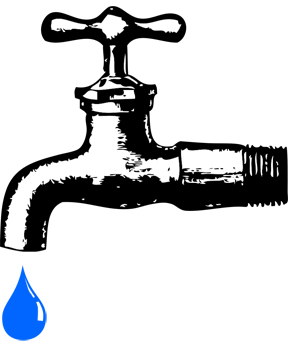 The Water Department will hold a public hearing on Thursday, Jan. 10 at 5 p.m. at the Lincoln Town Offices on its plan to institute first rate hike since 2015.
The Water Department will hold a public hearing on Thursday, Jan. 10 at 5 p.m. at the Lincoln Town Offices on its plan to institute first rate hike since 2015.
Residents are charged quarterly for town water in a three-tiered system based on their level of usage (0–20,000 gallons, 20,001–40,000 gallons, and 40,001 gallons or more). The Water Department plans to raise the charges by 10 percent, 15 percent and 20 percent, respectively, while the base change for all users will go up by $5 per quarter, said Water Commission member Ruth Ann Hendrickson.
“We’re really focused on minimizing the impact on lower-level water users who are conservation mindful,” she said.
Part of the increased revenue will be used to pay off an anticipated bond of about $1 million. Investments are needed because the Water Department is now subject to Occupational Health and Safety Administration rules, and because of recent annual inspection of procedures and methods “with a new inspector who had a big long list of things we have to do differently,” Hendrickson said.
“Just to make a perfect storm, we had some big failures this [past] year,” she added. Those included a water main break outside the library, an acid sink, and a 3,000-gallon water heater used to clean the treatment plan filters.
The three-tiered pricing structure and quarterly billing were introduced in 2015 to encourage conservation with the goal of meeting water usage limits required by the state Department of Environmental Protection. Although its budget and revenue structure must be approved by the town, it is funded entirely by user fees, and its revenues are expected to meet or exceed expenditures on a year-to-year basis, with the difference held in reserve to fund emergency repairs and system improvements.
The department plans to apply for a state program that offers zero-percent interest on bonds, though it’s unknown whether it will be accepted, Hendrickson said. As part of the process for qualifying for bonding, the Water Commission has developed a long-term financial and capital improvement program.
If approved, the increased rates will become effective on all rates and charges on any bill for usage after January 1, 2019.